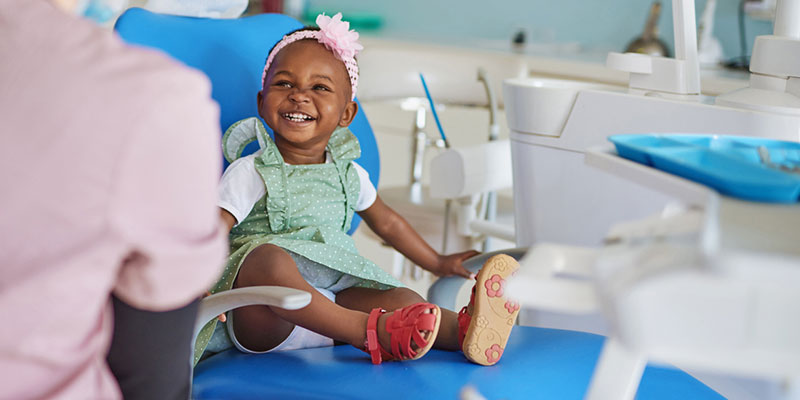Many parents ask, “Is a dental checkup necessary for my kid?” This question is often based on the misguided assumption that primary teeth are temporary; therefore, there’s no need to care for them as much as permanent teeth. However, the American Dental Association recommends that you schedule your child’s first dentist appointment by the time they are one year old or as soon as their first tooth appears. After that, you should schedule regular dental appointments, ideally twice a year.


Regular dental checkups for children are important for several reasons:
- Prevent Dental Problems. According to the CDC, nearly 1 in 5 kids between the ages of 2 and 5 have cavities that need treatment but do not get it. This suggests that many parents either ignore or wait too long to schedule dental checkups for their kids. Poor oral health can have far-reaching health effects for your child, from painful toothaches to bacterial infections. To avoid this, you should get ahead of these problems by regularly taking them to a dentist.
- Improve Your Child’s Quality of Life. Many studies have shown a positive correlation between good dental health and children’s well-being. Kids with healthy primary teeth generally have an easier time in speech development and chewing food. Furthermore, having clean, well-aligned teeth improves their self-esteem, allowing them to smile more confidently and form relationships more easily with their peers.
- Reinforce Good Oral Hygiene. Behaviors are more likely to become good habits for kids between ages 3 and 11. By scheduling regular dental checkups during this period, they’ll quickly learn the importance of good oral hygiene practices like visiting the dentist, brushing, and flossing. They will also be more likely to not be afraid of the dentist if they have positive experiences during their dental visits. As a result, they are more likely to stick to these practices well into adulthood (and probably teach them to their kids), meaning that you’ll have helped establish a dental care pattern for future generations.



